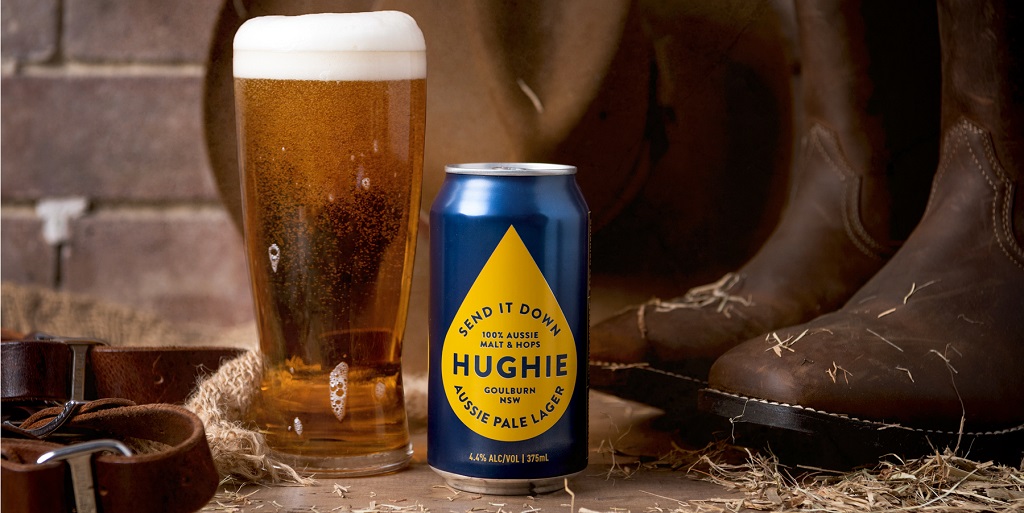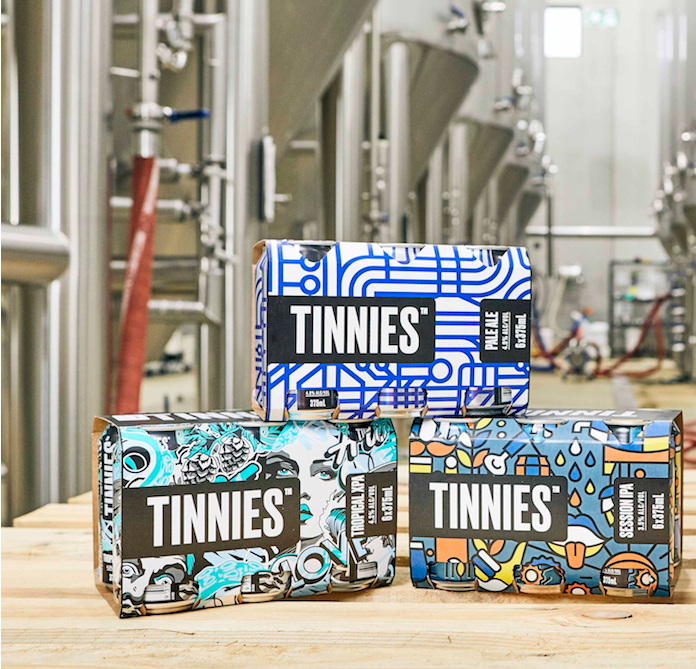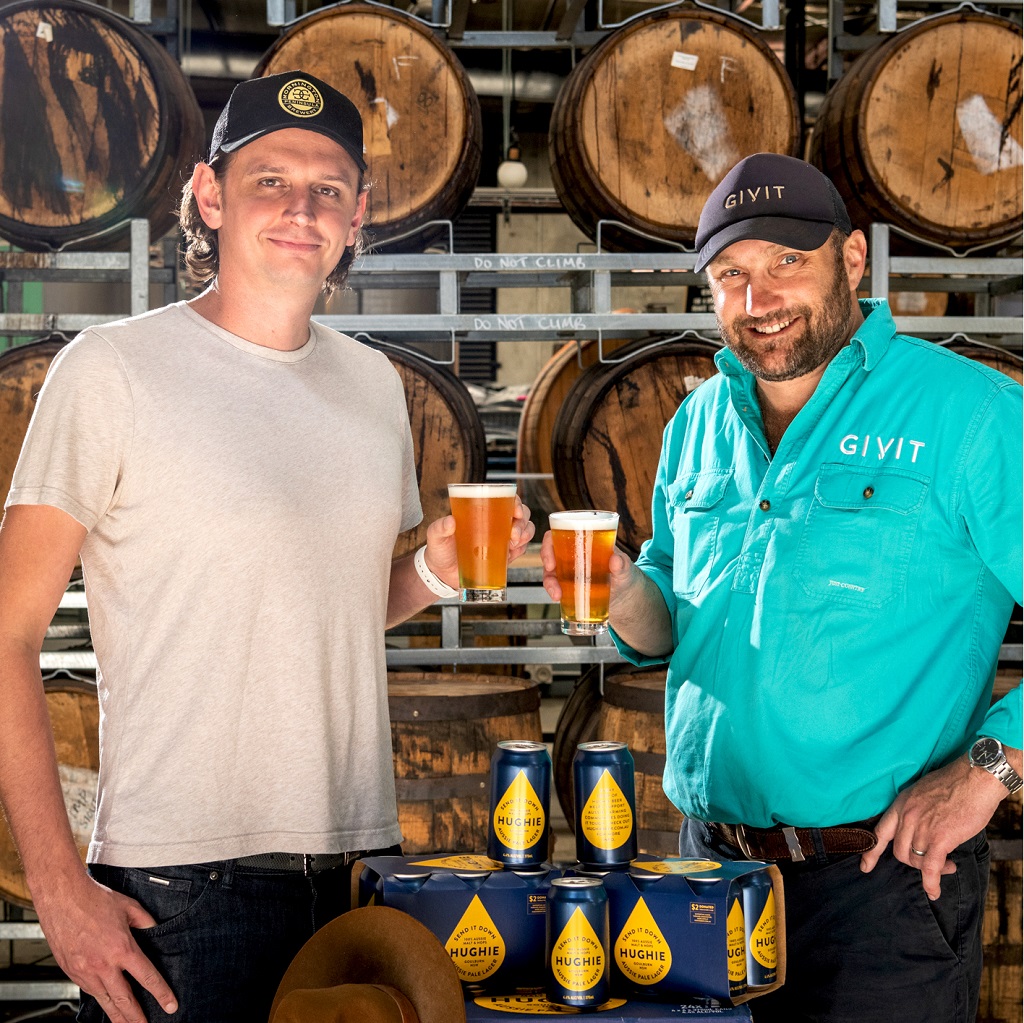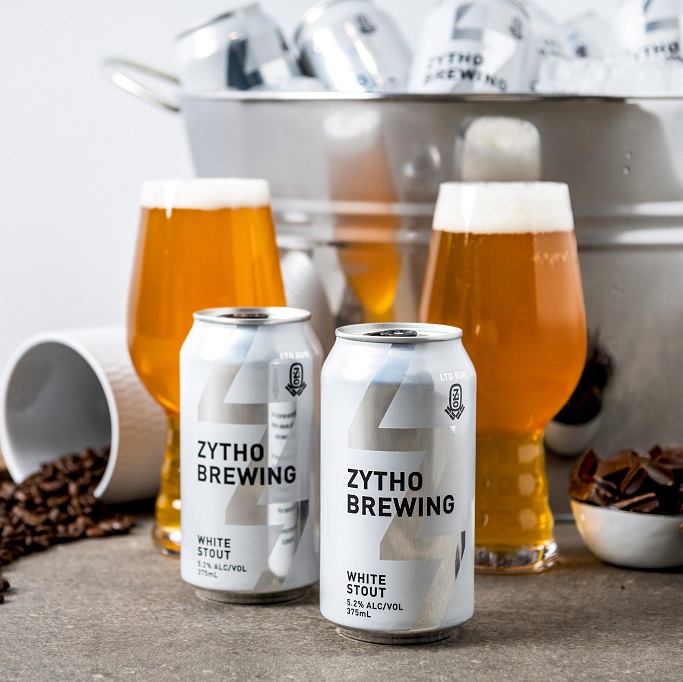
Retailers invest in private label craft beer

Endeavour Drinks Group’s Pinnacle Drinks launched Hughie Beer this month, continuing a spate of private-label craft beer brands introduced by the major bottleshops.
Hughie Beer is a 4.4% abv Australian pale lager, brewed with Aussie hops and malt in Goulburn, NSW by Tribe Breweries. It’s marketed as a ‘local lager’ with $2 from every case being donated to GIVIT to raise funds for those living in drought-affected communities.
Endeavour Drinks and Coles Liquor have both ramped up the launch and trademarking of private label beer brands this year, while at the same time balancing the move with an investment in local brands which saw Endeavour Drinks launch its Local Luvva campaign, and Coles asking for expressions of interest from local brands during the pandemic.
Private labels are nothing new and are part of strategies that have been used by supermarkets for years to improve profit margins and maintain greater control over the brands within their portfolio which they can modify to cater to specific audiences.
André Sammartino, Associate Professor at the University of Melbourne, said that there were a number of arguments for private labels.
“Exclusivity can be guaranteed, all branding and marketing costs are handled in house, product design issues do not have to be negotiated with a contract brewing partner, and the retailer has privileged market knowledge, as it should know more about who buys what than the breweries necessarily do,” he explained.
Everything from Woolworths’ Black & Gold groceries brand to Aldi’s BrewDog copycat Anti-Establishment Beer (which led to an unconventional tie-up last week) can be included under the private label banner.
Conventionally, companies have not highlighted their link to these private label brands, often leaving their own names in the small print on websites or the back of cans.
But perhaps because of relatively recent major private label award wins, such as Aldi’s Storm Super Dry winning the best Australian Style Lager award at the 2017 AIBA, or the Coles Liquor-owned Tinnies which took home the World’s Best Pale Bitter award at the World Beer Awards in London last year, they have been more likely to claim their private labels.
Endeavour Drinks Group has trademarked a number of brands in the past few months, including Block Brewing, Initial Brewing, and has other private label brands Zytho and Bluey, and even a newly trademarked hard seltzer brand Chipper.
George Stupart is the senior brand manager of the beer and cider division at Endeavour group company Pinnacle, and explained the benefits of private labels to the retailer.
“We use owned and exclusive beer brands to help differentiate the offering in our retail stores, provide a cost advantage in price-sensitive category segments and to have the opportunity to jump on key trends rapidly,” he told Brews News.
“Our approach is to work with local brewers on strong partnerships, which involves the development and ranging of both their brands and our own brands.
“Successful examples include Zytho White Stout, a beer that is light in colour but has all the complexity and flavours that you would expect from a dark winter stout, and Hughie Pale Lager, a beer that gives back to farmers through a partnership with national charity GIVIT, which were both developed in collaboration with Tribe Breweries.”
However, he said that despite the recent growth of private label brands, the majority of its beer range in stores is and will continue to be industry supplied brands.
“We will continue to look for local brewery partners across Australia for both ranging their own brands and also for jointly developing and ranging our owned brands.
“We want to continue to grow our beer category, and especially provide customers with a beer range that includes local craft, innovative styles, sustainability and moderation trends,” he said.
The economic argument
Associate Professor Jana Bowden at Macquarie University said that while the beer market en masse is in decline and at its lowest per capita consumption recorded in Australia – which Lion blamed for the closure of the West End Brewery last week – there is “significant market opportunity and growth right now in the craft beer market”.
“Players like Endeavour Drinks are jumping on the wave of consumer demand for new flavours and tastes and they’re delivering – they are expanding into the only part of the beer market that is currently growing [and] it’s the fastest-growing segment of the beer market,” she said.
“Craft is on the increase, [mainstream] lager is on the decrease and the opportunity is ripe for the taking to fill that gap in the shelves with their own product and take market share.”
Clearly, the two pronged-approach is working, as Endeavour Drinks Group reported revenues grew 23.2 per cent in the last quarter of the year, bringing total annual revenues to $9.3 billion.
But when it comes to private label brands, the bottleshops are willing to take a gamble on their own brand because they are retailers, not brewers. Endeavour itself highlighted the fact they have no brewing operations.
“They can get the product made at a price advantage because of their buying power,” Bowden explained.
“They can distribute it through their own networks with their own logistics. They make extra margin on sales.
“When you look at how beer drinkers buy, the majority – 91 per cent – are buying from mainstream liquor stores. They are simply leveraging an obvious opportunity.
“They can determine what product and brand they want to offer which gives them maximum flexibility and agility to take advantage of the growth trend.”
Associate Professor Sammartino also explained that high volumes would also have a beneficial effect on the price at the consumer end.
“The volumes ordered are so high, given the access to such a big network of stores, that the contract brewer is likely delivering at a considerably lower cost than most rivals – especially as the brewer is not bearing any of the marketing or salesforce costs,” he said.
“And finally, pricing and sheer existence of these ‘home brands’ acts as a bargaining chip in negotiations with the other breweries on the shelf.”
Growing a brand
While the beer can be good, one thing that is hard to replicate is a good story, and retailers have had to get creative with their private label brands.
“[Developing] an exclusive catchy name and packaging for their new products with a narrative and back story give the brands a unique selling proposition,” said Bowden.
“Many of them are then connecting the brand closely to charitable initiatives to build out an image of the brand as socially responsible and community-connected.
“This gives these newer brands an emotional edge that other mainstream brands perhaps don’t have.”
Attaching a brand like Hughie to both the charity and the concept of ‘local’, which consumers have proven is a key consideration especially during lockdown can then be seen as a good marketing tactic, but, as all brewers know, developing a strong, consistent brand with long term sticking power isn’t s easy as it sounds.
“[There] is a pretty compelling case [for private label brands],” explained Sammartino.
“The sticking points are that if the retailer isn’t that good at branding and product design, or if consumers resent the exclusivity or don’t buy into the marketing, and/or if some of the larger breweries withhold their product in response.”
Although he said that given the duopoly in the Australian beer market this final issue seems unlikely.






